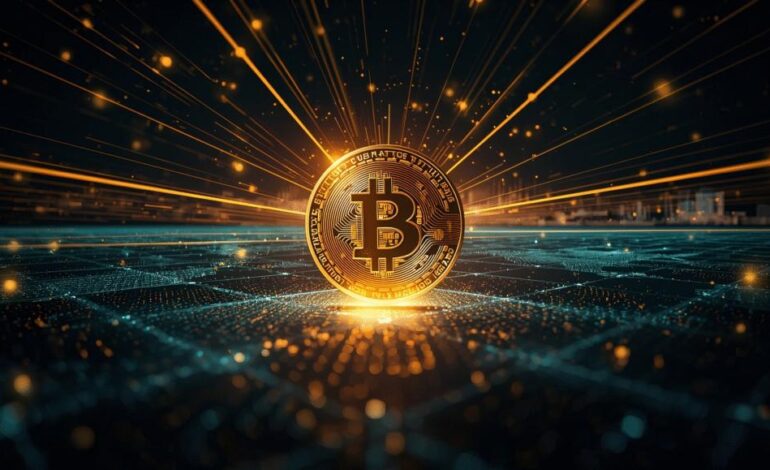Key Insights:
- Bitcoin is a type of digital money that operates without banks or governments.
- It lets people send value anywhere in the world quickly and without permission or intermediaries.
- Many people see Bitcoin as digital gold and a hedge against inflation.

Bitcoin is a form of digital cash that runs on a network of computers. It doesn’t rely on banks or middlemen. Instead, it uses software and mathematics to manage transactions.
This means that no single person or government controls it.
Bitcoin appeared in 2009 when a person (or a group of people) using the name Satoshi Nakamoto published a white paper explaining a new way to move money online.
The idea was simple: create a system where people could send money to each other directly, without needing trust or permission from anyone else.
How Does Bitcoin Work?
To understand Bitcoin, think of it as a mix between digital payments and gold. It allows instant transfers, but it’s also scarce like a precious metal. Only 21 million Bitcoins will ever exist, and this fixed supply gives it value in the eyes of many users.
When you own Bitcoin, you hold a private digital key. This key lets you access and send your coins, and if you lose it, you lose access to your Bitcoin. This is why wallets and backups are important.
So Who are Bitcoin miners?
Bitcoin miners are the people or groups that process transactions. They use powerful computers to solve complex puzzles on the network, and when they find a solution, they gain the right to add a new block to the blockchain.

Bitcoin miners use powerful computers known as ASICs to solve puzzles on-chain | source: CNBC
Additionally, they receive freshly created Bitcoin as a reward. This process is known as mining, and it is very important for how the Bitcoin network works.
Every four years, the reward miners get is cut in half. This process is called the halving and is the single most important aspect of Bitcoin’s supply and demand dynamics.
Why Does Bitcoin Matter?
Bitcoin gives people control over their money. In traditional banking systems with banks and brokers, access can be limited or even frozen for any reason. Bitcoin removes those barriers, and anyone with an internet connection can start using it.
Some use Bitcoin to save, while others use it to send money across borders. Transactions on the Bitcoin network settle within minutes, as opposed to hours or days for bank transfers.
Bitcoin is also great for those living in countries with unstable currencies.
Businesses have even started to accept Bitcoin payments. Platforms like PayPal, Shopify and even some local stores allow purchases with Bitcoin. For some, this is more than a convenience.
It stands for financial independence and global participation.
Bitcoin as Digital Gold
Many investors call Bitcoin “digital gold.” The reason is its limited supply and its rising acceptance as a store of value. Like gold, Bitcoin is mined, scarce and cannot be printed by governments.

Unlike gold, it is lightweight and easy to divide. Not to mention its ease of transfer. Anyone can send any amount of Bitcoin across the world in seconds. This combination of scarcity and utility has been one of the most attractive aspects of Bitcoin, especially for major companies and institutions.
Large firms like Tesla, MicroStrategy and Square have purchased Bitcoin as part of their financial reserves.
When central banks create more money, the value of existing cash tends to drop. Because of this, Bitcoin’s fixed limit helps it hold value over time.
The Risks of Bitcoin
Bitcoin is not without its issues. For starters, prices can change quickly, and the market often experiences large swings.
Because of this, people who buy without understanding these risks tend to lose money. There are also scams and fake investment schemes that use the name “Bitcoin” to trick people.
Security is another major topic.
While the Bitcoin network itself is highly secure, users must protect their private keys. This means that losing them or even storing them on an unsafe device can lead to theft.
Moreover, regulations differ around the world. Some governments support Bitcoin use, while others restrict or ban it. This combination of rules in different parts of the world can affect how people buy, sell, or store Bitcoin in different countries.











